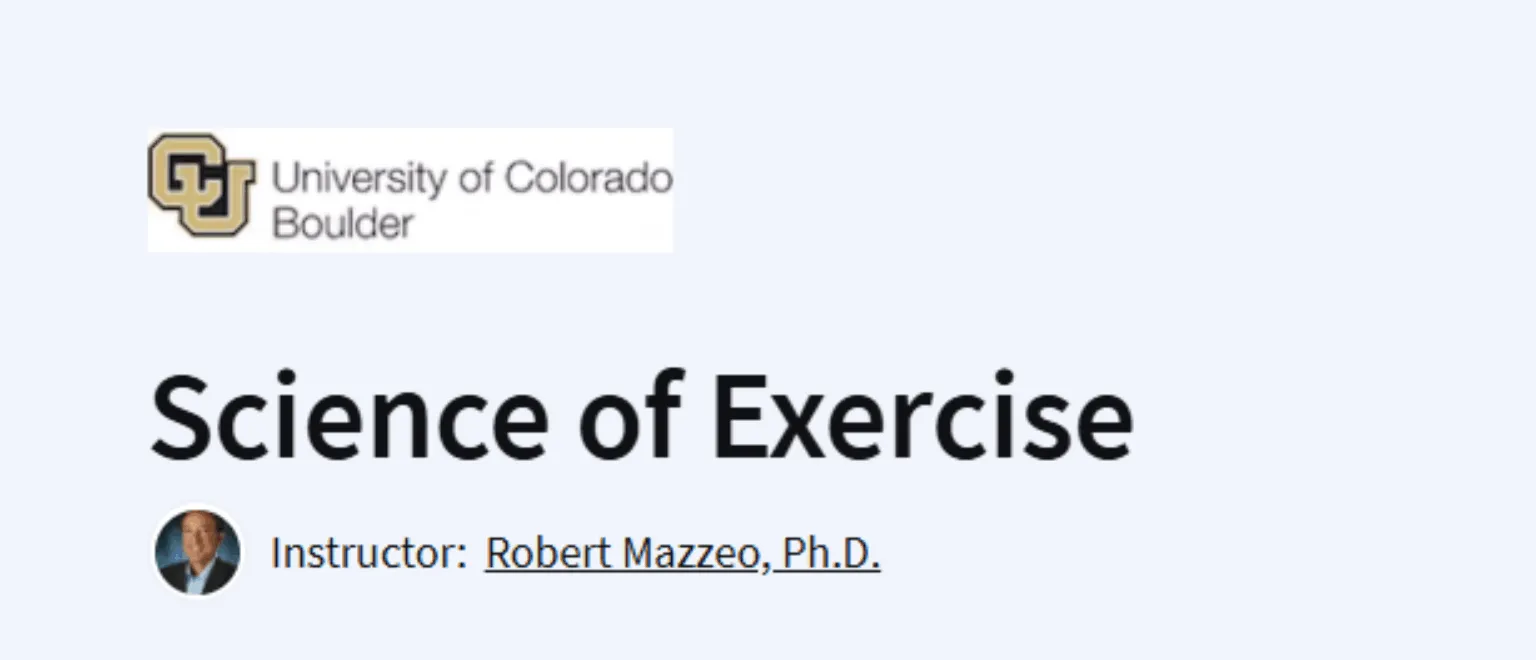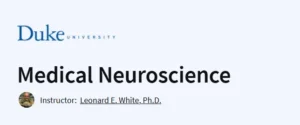What you will learn in Science of Exercise Course
- Explain the relationship between exercise and the body’s physiological responses, including carbohydrate, fat, and protein metabolism.
- Describe the role of nutritional choices and their impact on health and training.
Summarize the factors that contribute to muscle soreness, fatigue, and the dangers associated with performance-enhancing drugs.
Program Overview
The Energetics of Exercise
⏱️2 hours
- Learn about metabolic pathways activated during exercise to supply energy for muscle work.
- Understand how these pathways are regulated and methods for assessing fuel utilization.
- Explore the importance of ATP in muscular work.
Physiological Systems During Exercise
⏱️2 hours
- Study how key physiological systems (muscular, cardiovascular, respiratory) respond to exercise.
- Examine the adaptations that occur with regular physical activity.
- Understand the body’s mechanisms for maintaining homeostasis during exercise.
Nutrition and Exercise
⏱️ 2 hours
- Explore the role of nutrition in supporting exercise performance.
- Learn about macronutrients and micronutrients essential for energy production and recovery.
- Discuss hydration strategies and their impact on performance.
Exercise and Health
⏱️2 hours
- Investigate the health benefits of regular physical activity.
- Understand how exercise contributes to the prevention and management of chronic diseases.
- Examine the psychological benefits of exercise and its role in mental health.
Get certificate
Job Outlook
Professionals with knowledge in exercise science are in demand across various fields, including healthcare, fitness, and sports. Key skills include:
Understanding of exercise physiology and its application to health and performance.
Ability to design and implement effective exercise programs.
Knowledge of nutrition and its role in supporting physical activity.
Specification: Science of Exercise
|
FAQs
- How the human body responds to physical activity.
- The role of exercise in improving cardiovascular health, strength, and endurance.
- How exercise affects metabolism and energy use.
- The mental health benefits of regular physical activity.
- You don’t need professional fitness experience.
- Designed for beginners, students, or professionals in health sciences.
- Content focuses on science, not performance.
- Anyone interested in exercise and wellness can join.
- Physiology of muscles, lungs, and heart during exercise.
- Exercise and weight management.
- The role of nutrition in supporting physical activity.
- Exercise in disease prevention and rehabilitation.
- Understand how to design effective exercise routines.
- Apply concepts to improve your own fitness and health.
- Gain knowledge useful for careers in healthcare, sports, or wellness.
- Make evidence-based decisions about physical activity.
- Students interested in exercise science or health studies.
- Fitness enthusiasts wanting deeper knowledge of how the body works.
- Healthcare workers who want to understand exercise’s role in treatment.
- Anyone looking to make informed lifestyle and wellness choices.





